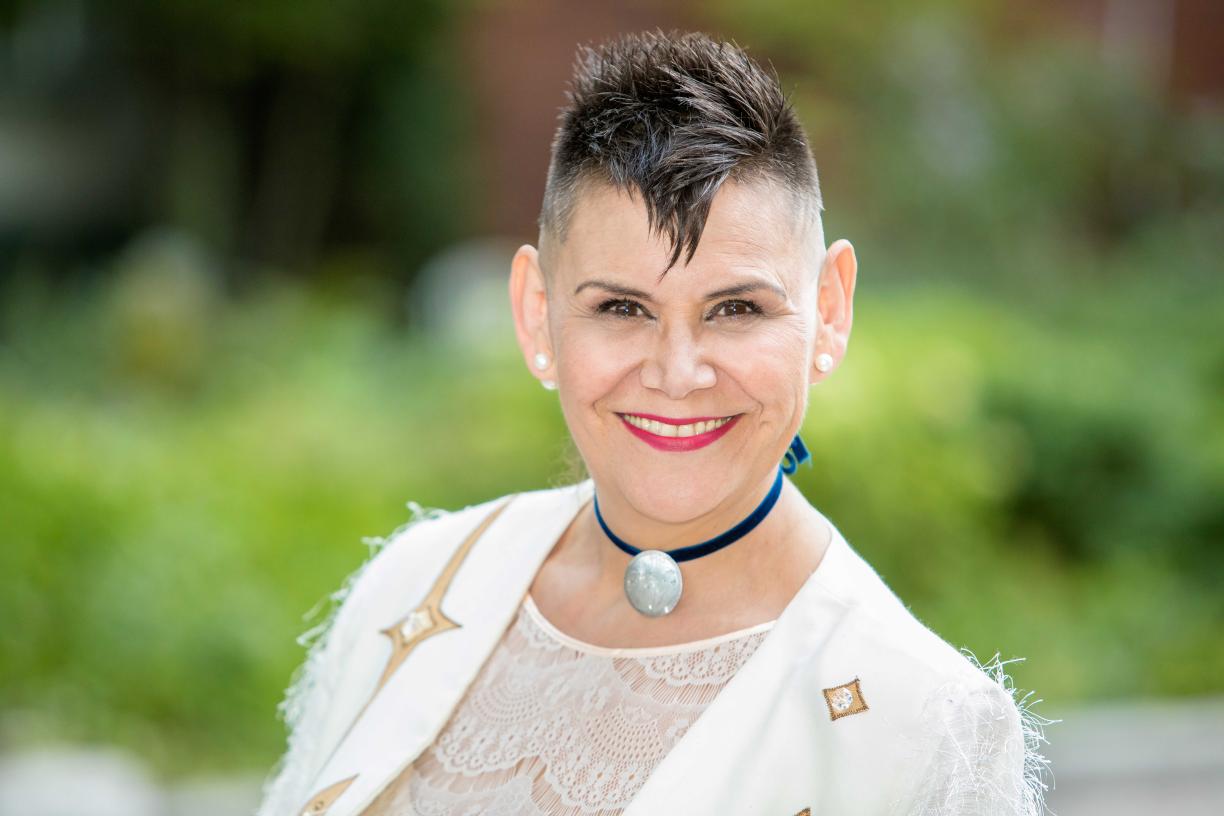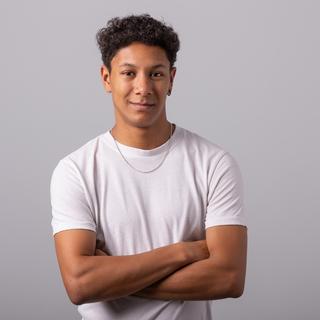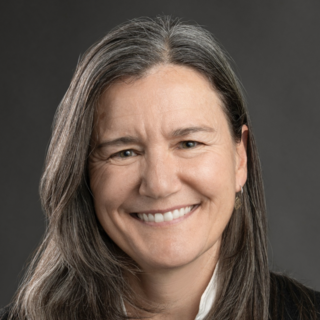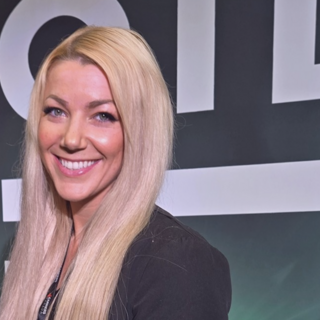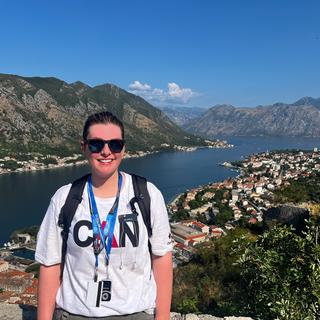VIU alum J’net Ayayqwayaksheelth (One who gives away and still stands tall) recently took on a new, key role with the National Film Board of Canada – as the organization’s Director of Indigenous Relations and Community Engagement. In this role, she will provide leadership and cultural awareness within the NFB to implement organizational change and transformation at all levels of the institution, as announced in a NFB press release. J’net, who graduated from VIU in 2000 with a Bachelor of Arts, Major in First Nations Studies and a Minor in Women’s Studies, is a member of the Ahousaht First Nation and grew up in Port Alberni.
An award-winning arts leader and digital educator committed to raising the positive profile of Indigenous Peoples, J’net previously served as the Indigenous Outreach and Learning Coordinator with the Royal Ontario Museum Learning Department. Prior to that, she was Developer & Manager for Centennial College’s Indigenous Curriculum and Partnership Facilitator for the Association for Native Development in the Performing and Visual Arts.
Here’s more about how VIU helped prepare her for what she’s doing now, and what she hopes to accomplish in her new role.
Why did you choose VIU for your education?
I had just relocated back home to British Columbia from Ontario as a solo parent and needed to finish a degree that I’d already started. I knew that getting an education meant that I could have better career options and more stability, so that was my major motivation. When I found out that I would have to repeat three years of social work to get a degree from BC because my degree work was from out of province, I started a whole different degree! If I was going to have to repeat three years, I might as well finish a new program. I chose First Nations Studies because it was very new at the time, and it was refreshing to see Indigenous instructors and Indigenous world views in my learning journey.
Tell us a bit about your experience at VIU and in your program.
My experience at VIU and in the program was empowering. I was among mostly Indigenous learners, which meant there was a lot less hassle in terms of being able to understand the humour and the experiences we had in common. It really validated a lot, because I was around people who knew what it felt like to come from generations of broken homes due to residential schools and could understand my personal experience of growing up in white foster care.
One of the other things I liked about the program was that it was pragmatic. It gave us opportunities to do relevant experiential learning activities and activations. I did a lot around storytelling and oral tradition. I also was motivated to do a project on urban self-government. We’d been asked to do a group project on self-government, but I encouraged a group of us to do one focused solely on urban self-government, because I am third generation living off-reserve. I knew other people would have some good ideas to add to that.
What advice would you give VIU students following a similar trajectory as yourself?
Take your time! University is not going anywhere. By the time I finally got a university degree under my belt, 10 years had passed. And don’t be hard on yourself. If you take one course a semester, that’s your course. It gives you more traction and opportunity than anything else. So, slow and steady, slow and steady! Always put your family first. Your children are watching and they see you reach for your goals. Not only do children learn more when you read to them, they learn more when they see you reading. I felt very motivated as a parent to keep my studies up, because it gave my children a role model.
What do you hope to accomplish in your role at the NFB?
I’d like to be a leader who gently and tactfully, and with a lot of love, care and concern, changes conversations that are not always easy to have. I want to really tackle some of the racism and oppression that still exist for Indigenous communities and find ways forward that respect our humanity as Indigenous Peoples. I also want to give the National Film Board an ever-more credible reputation as being a leader in public knowledge. Being able to have some important conversations, not just about the difficult past but also about Indigenous excellence. That’s one area I’d like to really focus on. We’ve experienced a fair bit of excellence in every sector, and we get celebrated with annual Indspire Awards, but if Indigenous people didn’t pat ourselves on the back, we wouldn’t know what those successes are.
What’s next for you?
I’m in Sept-Îles, Quebec, and next for me is getting my tongue and ears wrapped around the French language so that I have more of an impact as a bilingual — actually, make that trilingual — speaker, as I’m also fluent in sign language, because I myself have deafness.
Is there anything else you would like to add?
I think the next generation of young people are watching, and I think it’s important for them to see outspoken leaders like myself, who come from small towns (Port Alberni in my case) and humble beginnings. But you can make big tracks in life when you take a risk, explore what gifts you have to share and dream big. That’s my final message! Chuu!

